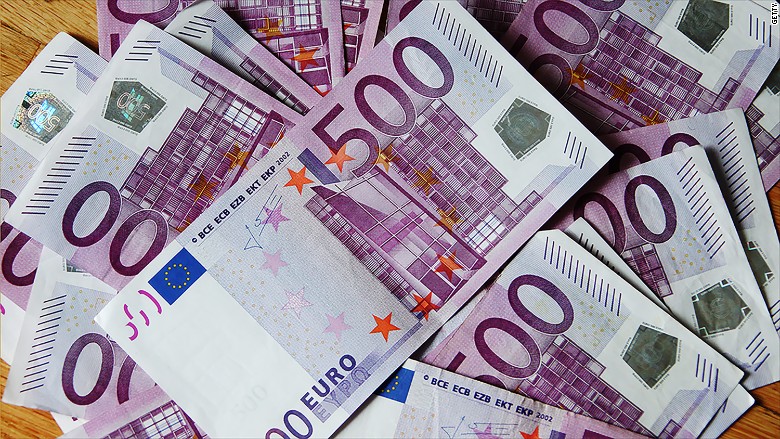The Euro faces significant challenges in 2017. The European Central Bank continues to conduct its version of the quantitative easing, which is keeping its interest rates artificially low. Germany has been lobbying them to raise their interest rates, with their cries going to deaf ears. This is causing a weak Euro, with hopes this could cause economic stimulation. If the Euro wasn't already weak enough, tail risk in the form of politics has begun to emerge. The rise of populism across the continent, fueled by populist wins in Britain and the United States has started to awaken the fears of investors. Lets take a look at some of the countries and a brief summary of what is going on.
Netherlands
Netherlands starts off the European political roller coaster with its elections slated for March 15th. One of the leading candidates the far right, Geert Wilders who represents the Party of Freedom (PVV) has a strong disdain for Islam. He has been compared it to likes of Nazi. In a recent interview he has said he wants to close all mosques in the Netherlands. He's slogan similar to that of America's Donald Trump is. "Netherland is ours again."
Although the economic implications of him winning are not great, it could set as a precedent for other populist parties in the EU to rise. It could be the beginning of a domino effect.
France
Le Pen the leader of the populist National Front Party, has gained a little beat more steam in the polls. Le Pen's whose chances int he polls was once less than 30% has been given a boost thanks to the recent scandal to cloud the favorite, Francois Fillion. Fillion came under scrutiny when reports surfaced that he payed his wife from government funds for work that she did not do. Fillion denies the allegations and has said he will not drop out of the election.
Many pollsters and financial institutions do not see any chance of Le Pen winning the election, even with her advancement in the poll numbers. Pre 2016, this will cause there to be no worries but with the upsets in Britain and thew United States, investors are on the edge. Nobody wants to be fooled for the "third time." As we get closer to the election we should see more, hedging positions in the market. There has already been a huge sell off in French 10 years, causing the yields to shoot up.
What has investors concerned of a Le Pen victory is that she wants out of the European Union and wants France to revert back to their local currency. The implication is that France holds all their debt in Euros, which will have to be converted to the weaker local currency. This will cause France to essential have to payback more to debtors. Economics have said that if France were to revert back to their local currency, it would quickly be devalued against the Euro. On top of all that France will have to issue out even more debt to finance Le Pen's expansive infrastructure plans.
A win for Le Pen in France would also increase the strength of other Anti-European Union parties in Europe.
Germany
Germany is the anchor of the European Union and represents stability in the region. It has a robust economy and might be the "model" for other countries in the bloc. With their strong leader Angela Merkel, the represent a stronghold against Anti-European Union ideas.
Merkel is up for her fourth reelection later this year. Although she faces some political threats from the far right and the far left, right now it is almost certain that she wins. Merkel, herself is a a part of the conservative centre-right, Christian Democratic Union Party. Wow many analysts have no doubt she will be victorious, populist wins in other countries could begin to raise doubts.
Germany benefits tremendously from being in the European Union. They are the top performer, economically in the bloc and as of now they run the biggest trade surplus in the world. Mostly due to the fact that they use the Euro, which is valued very low if Germany were to use their own national currency. This makes the attractive German goods even more attractive. The backlash Germany has been getting for such a high trade surplus is that other countries pick up their surplus as a deficit. Trades have to balance out. This brings a negative light on Germany because the other countries in the EU are not doing well. This could also be a very big reason why Germany does not pose a threat from Anti - EU parties.
Conclusion
Wrapping up our thoughts, we believe that the Euro will be under extreme pressure in 2017 and will be moved intraday by headlines on the upcoming elections. Economic data for inflation and unemployment will also be very important. Subpar numbers will increase the chances of continued quantitate easing. In the United States, reflationary policies also apply significant pressure on the Euro. With all this in mind we see the currency leaning towards the downside this year.







No comments:
Post a Comment